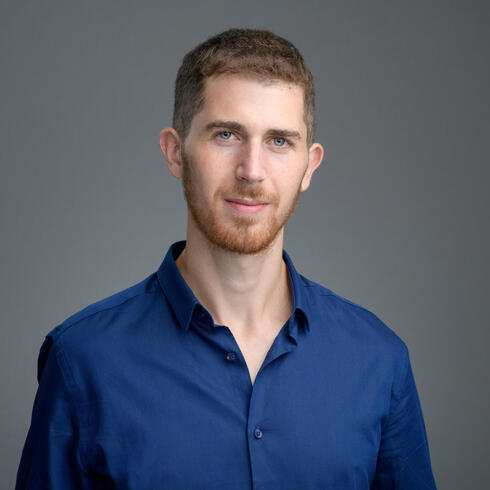
Opinion
Israel's quantum leap
According to Classiq Technologies co-founder and CEO Nir Minerbi, maintaining Israel's global status as a "Startup Nation" also requires being a leading and significant player in the field of quantum computing
For decades, quantum computing was a theoretical vision that hovered in the corridors of academia and was perceived as being remote from reality. In recent years, we have seen how skepticism has been replaced by optimism: the technological breakthroughs are already heralding the start of the era of quantum computing, which is expected to become the domain of many organizations and countries in the coming years.
Governments and technology giants compete constantly to build quantum computers, realizing that such devices will give them tremendous strategic advantage in the very near future. Israel is also making a lot of effort to be on par with its peers. The state recently announced that it would invest around NIS 115 million in this field, in addition to the NIS 1.25 billion allocated for the promotion of quantum technology in Israel, a program the state announced in 2019.
Quantum computing marks a dramatic turning point for all of humanity. With the advent of the quantum computer, the rules of the game will be altered and a new standard of speed will be set, where calculations and developments that would have taken thousands of years on a regular computer will only take days, minutes, or even seconds, making it possible to solve calculations that have previously been impossible, thereby revolutionizing the world. A wide range of industries will be greatly impacted by these capabilities, for example improving and speeding up financial calculations like option pricing, portfolio and asset optimization, accelerating the development of new drugs or materials with molecule simulations, and optimizing complex production processes (including a significant impact on processes that reduce emissions and save energy). As in the 1970s, when the development of the internet and iPhones could not be anticipated, the human imagination is incapable of understanding the magnitude of quantum computing's revolution.
The recognition of the significant value of quantum computing does not skip any sector. Tech giants like Google, Microsoft, and Amazon are already developing applications for quantum computers, while organizations in the automotive, financial, pharmaceutical, and energy sectors have already begun training their workers. Additionally, academia is moving forward with research or curriculum launches in universities worldwide, in hopes that the quantum computing industry's growing demand will affect academic choices for the next generation of engineers.
Related articles:
However, this exciting vision may encounter a bottleneck. While the technology continues to be perfected, there are only a few hundred quantum algorithm experts worldwide capable of developing quantum software. McKinsey's study estimates that around half of quantum positions will go unfilled without a policy change by 2025. There are lessons we can learn from artificial intelligence (AI). Although AI has already reached the mainstream in every industry, experts are still in short supply.
However, this is precisely where the opportunity also lies, as Israel's relative expertise could bring it to the front of world efforts and enable a variety of sectors and people to participate in the revolution. In order to achieve its potential, Israel must establish a concrete goal and take various measures to achieve it. In Japan, for example, they set a goal of training no less than ten million software developers for quantum computers by 2030; setting a similar goal on a local scale and allocating dedicated budgets will facilitate the expansion of the academic curricula devoted to the subject. Furthermore, implementing quantum computing will create a new generation of quantum developers.
It is important that the private sector also gets involved and doesn't miss the train. In order to leverage the quantum technology breakthrough, both high-tech and other industries should mobilize. The world of quantum computing may sound threatening even to a full-fledged software developer, but continued exposure and accessibility to the field will help recruit more experts in the long term.
It is like any technological revolution, those who can board the train when it is accelerating will gain an advantage. Maintaining Israel's global status as a "Startup Nation" also requires being a leading and significant player in this field.
Nir Minerbi is the Co-Founder and CEO of Classiq Technologies. He is taking part in Calcalist's Innovation week being held between January 9-11.
